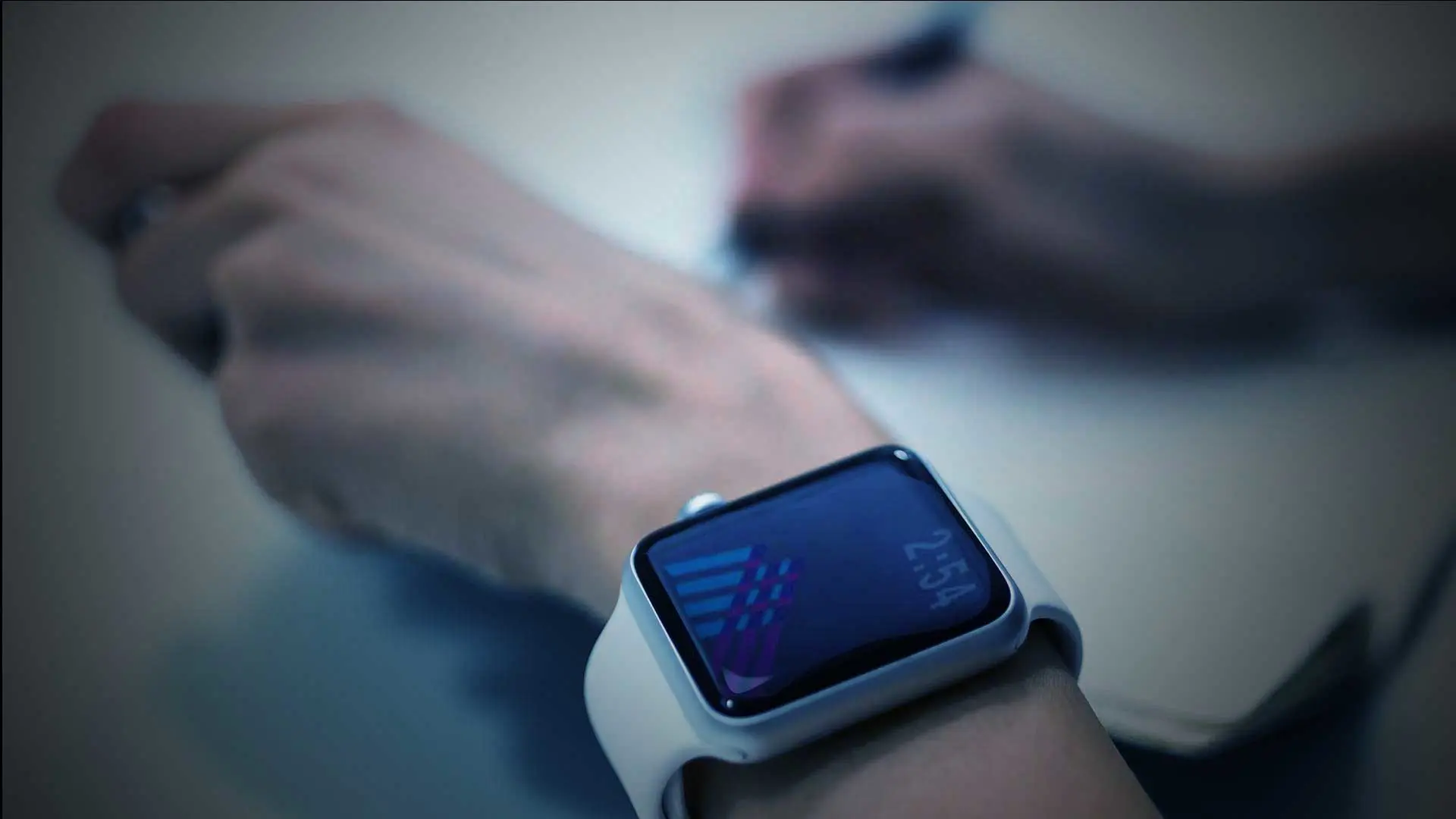Mount Sinai researchers have found in the Warrior Watch Study that subtle changes in a participant’s heart rate variability (HRV) measured by an Apple Watch were able to signal the onset of COVID-19 up to seven days before the individual was diagnosed with the infection via nasal swab, and also to identify those who have symptoms. The findings were published in the Journal of Medical Internet Research in February 2021.
Wearable devices can identify COVID-19 cases earlier than traditional diagnostic methods and can help track and improve management of the disease, says the study’s co-author Zahi A. Fayad, PhD, Professor of Medicine (Cardiology) and Diagnostic, Molecular and Interventional Radiology, Director of the BioMedical Engineering and Imaging Institute, and Co-Founder of the Mount Sinai Clinical Intelligence Center (MSCIC), Icahn School of Medicine at Mount Sinai.
“This technology allows us not only to track and predict health outcomes, but also to intervene in a timely and remote manner, which is essential during a pandemic that requires people to stay apart,” says Dr. Fayad, who is the Lucy G. Moses Professor in Medical Imaging and Bioengineering and a leader in the study of stress in relation to inflammation and overall health.
According to the study, the HRV metric provides insight into the interplay between the parasympathetic and sympathetic nervous system, which modulate cardiac contractility and cause variability in the beat-to-beat intervals. Several studies have demonstrated that lower HRV, indicating increased sympathetic balance, is a reliable predictor of infection onset. However, HRV and its dynamic changes over time have not been evaluated as a marker or predictor of COVID-19. In response to the COVID-19 pandemic, Mount Sinai launched The Warrior Watch Study.
The researchers enrolled 297 health care workers throughout the Mount Sinai Health System in the ongoing observational digital study between April and September 2020. The median age at enrollment was 36, and 69 percent of participants were women.
“This technology allows us not only to track and predict health outcomes, but also to intervene in a timely and remote manner.”
Zahi A. Fayad, PhD
The participants wore Apple Watches and answered daily questions through a customized app. Changes in their HRV—as detected by the wearable device—were used to identify and predict whether the workers were infected with COVID-19 or had symptoms. Other daily symptoms that were collected included fever or chills, tiredness or weakness, body aches, dry cough, sneezing, runny nose, diarrhea, sore throat, headache, shortness of breath, loss of smell or taste, and itchy eyes.
The study found that longitudinally collected HRV metrics from a commercial wearable device can identify the diagnosis of COVID-19 and COVID-19-related symptoms. Prior to the diagnosis of COVID-19 by nasal PCR, significant changes in HRV were observed, demonstrating its predictive ability to identify COVID-19 infection. The researchers also found that 7 to 14 days after diagnosis with COVID-19, the HRV pattern began to normalize and was no longer statistically different from the patterns of those who were not infected.
“This study shows that we can use digital health technologies to better address evolving health needs, which will hopefully help us improve the management of disease,” says the study’s corresponding author, Robert P. Hirten, MD, Assistant Professor of Medicine (Gastroenterology) at the Icahn School of Medicine, and member of the Hasso Plattner Institute for Digital Health at Mount Sinai and MSCIC. "Our goal is to operationalize these platforms to improve the health of our patients, and this study is a significant step in that direction. Developing a way to identify people who might be sick even before they know they are infected would be a breakthrough in the management of COVID-19.”
Tim Cook, the CEO of Apple, singled out Warrior Watch at a company event in September 2020 as an app that could make a difference for patients.
The Warrior Watch Study draws on the collaborative effort of the Hasso Plattner Institute and the MSCIC, which represents a diverse group of data scientists, engineers, clinical physicians, and researchers across the Mount Sinai Health System who joined together in the spring of 2020 to combat COVID-19. The study will next take a closer look at biometrics including HRV, sleep disruption, and physical activity to better understand which health care workers are at risk of the psychological effects of the pandemic.
Featured

Zahi A. Fayad, PhD
Professor of Medicine (Cardiology) and Diagnostic, Molecular and Interventional Radiology, and Co-Founder of Mount Sinai Clinical Intelligence Center

Robert H. Hirten, MD
Assistant Professor of Medicine (Gastroenterology)
